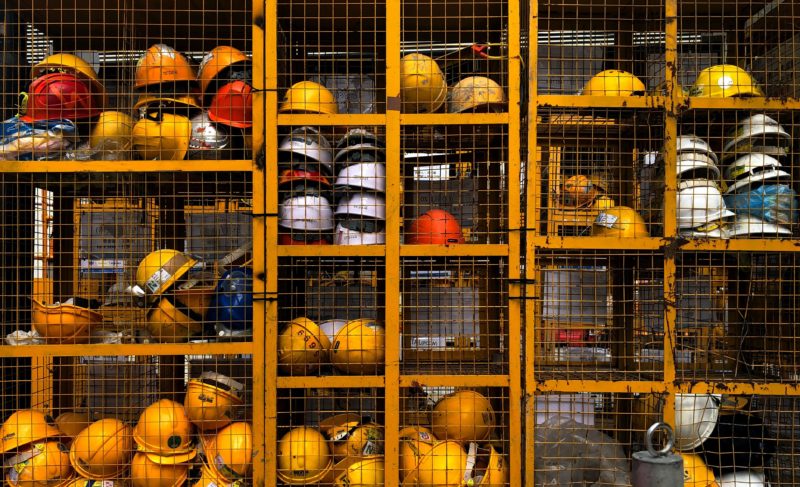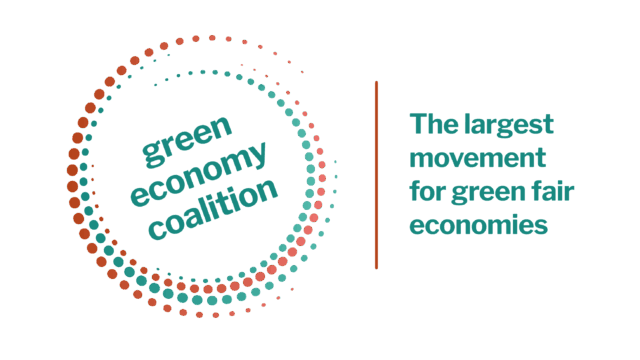Green economy news round-up, April
All the latest news & views from across the green economy and sustainability sector, in a handy monthly digest.

If you've got a story on the green economy that you think we need to know about - get in touch.
It’s been over a year since COVID-19 entered our vocabulary. Green recovery and vaccine plans are being rolled out, but some countries - notably India - are still in the grips of lockdown and dramatically worsening health crises. Meanwhile, carbon reduction targets are being pledged across the globe, and Biden's climate summit seemed a qualified success.
Here’s our round-up of the last two months in the green economy world.
Green Recovery
All EU member states must submit their green recovery plans to the EC by the end of April - but the road to recovery is never smooth. Cyprus has pledged to fast track its transition to a green economy. France and Germany have revealed their green recovery plans, which include an energy renovation scheme for homes and a major digital education drive as well as carbon emission reductions. Interestingly, it seems that the countries which involved the public in the planning process have made the most progress towards a green recovery.
China is a country of contradictions. Its carbon emissions continue to grow but partly due to its provision of materials for greener sectors. A green recovery is near non-existent in Argentina, Brazil and Mexico. And some low- and middle-income countries have no funds to invest in green recovery initiatives, amid increasing debt crises. The UN reports that only $368 billion of the $14.6tn spent on COVID stimulus in 2020 was directed towards green recovery initiatives.
All eyes were on the United States and the Leaders Climate Summit in April, where President Biden unveiled a ambitious pledge to cut carbon emissions by 50-52% below 2005 levels by 2030. Canada, Japan and South Korea also increased their targets though India and China made no new pledges. Outside of the summit, the UK has set the bar high with a commitment to decrease emissions by 78% by 2035 compared to 1990 levels. Costa Rica is aiming for total decarbonisation by 2050 with a restoration plan. And Denmark may succeed in its vision to cut emissions by 70% by 2030 with a carbon tax. Now we must see policy and action following words.

For an overview of how countries around the world are dealing with the pandemic our Green Economy Tracker uses data to compare how governments are dealing with the crisis. And lest we forget, a green recovery is not just about economic recovery it’s about our collective physical and mental health too. A non-covidy hug to you all.
Valuing Nature
All eyes may be back on cutting carbon emissions right now, but we mustn’t lose sight that it’s a critical year for biodiversity too. The High Ambition Coalition for Nature and People, consisting of over 50 countries, is aiming to secure international agreement to protect 30% of land and sea by 2030. Restoration and rewilding should increase, as the UN launches the Decade of Ecosystem Restoration this June. A new set of biodiversity targets will be thrashed out at the Convention for Biological Diversity this October.
Deforestation rates are expected to have increased in 2020 due to the pandemic. Causes include weaker law enforcement, forest protection funding cuts and increased migration from towns and cities to more rural areas. Similarly conservation efforts have reduced in more than half of Africa’s protected areas and a quarter of Asia’s because of COVID. Some positive news though. Business has joined forces with government to commit £1bn towards the conservation and restoration of tropical forests.
A landmark study by the University of Cambridge and the RSPB has reinforced the fact that it pays to protect nature. The study found that the economic benefits of conserving or restoring nature were greater than the potential profit from using the land for farming or logging. And nature is not just of economic value. A study published by the Intergovernmental Science-Policy Platform on Biodiversity and Ecosystem Services (IPBES) found that as nature declined, so did quality of life. Nature is intrinsically linked to our wellbeing.
“ At this critical moment, vaccine equity is the biggest moral test before the global community.”
The carbon sink value of UK waters has been estimated at £57bn, which is more valuable than as a resource for fishing or fossil fuel extraction. Its total natural capital value, which includes renewable energy production and tourism is £211bn. And nature contributes 17bn to UK tourism.
We love this proposed world-first bond, which would give Pakistan debt relief in exchange for speeding up its 10 billion tree planting programme. And that Scotland could become the first rewilding nation.
Reducing Inequality
India is currently in the middle of a dire humanitarian crisis, but even a month ago, things were not looking rosy. The pandemic has thrown rising inequality into sharp relief. More people may have been pushed back into poverty than anywhere else. Elsewhere, a major study has shown that people are becoming more worried about the rich-poor divide following coronavirus. COVID has cost women $800bn in lost income over the year according to Oxfam and informal workers in particular, who form 61% of the global workforce, need a new deal post pandemic. The inequality in access to vaccines has also received wider coverage, as rollout begins across nations. UN Secretary General António Guterres said: “At this critical moment, vaccine equity is the biggest moral test before the global community.”
In the US can Biden’s economic aid package and recovery plans help reduce wealth inequality? This piece
hopes so. A group of national organisations have also formed a coalition to address the increasing racial wealth gap in the country.

An EU citizens’ initiative has called on the European Commission to present a universal basic income for the EU, though it requires at least 1 million voters to sign the initiative by September before the EC will consider it.
Human rights activist Kumi Naidoo called for a new social contract ahead of the recent climate summit that taxes the super-rich and showed that climate action can benefit ordinary people. “Tackling inequality is our best and only chance to tackle climate change,” he said.
Greening Economic Sectors
Agriculture and food are the second largest sources of greenhouse gas emissions and the biggest driver of biodiversity loss yet progress to change destructive systems is slow. This piece agrees. In transport electric vehicles are estimated to increase to 145m by 2030 and the shipping industry wants its emissions to be taxed.
Chile boasts the best solar power conditions in the world, and it’s hoping to capitalise on it. Denmark is leading the way in green technology and business.
Reforming Financial Systems
Sustainable bond issuance is forecast to hit record levels in 2021 and the UK has launched its first green savings bond. Natural capital is beginning to feature in the investment world. Finally. Banking regulators have begun climate stress tests. And there’s a powerful new argument for fossil fuel divestment: financial as well as moral profit.
Measuring and Governing
Last but definitely not least, we are thrilled that the UN has adopted the landmark natural capital framework for economic reporting. This is a welcome move away from the sole use of GDP for economic reporting, and ensuring the value of nature is recognised on balance sheets.


